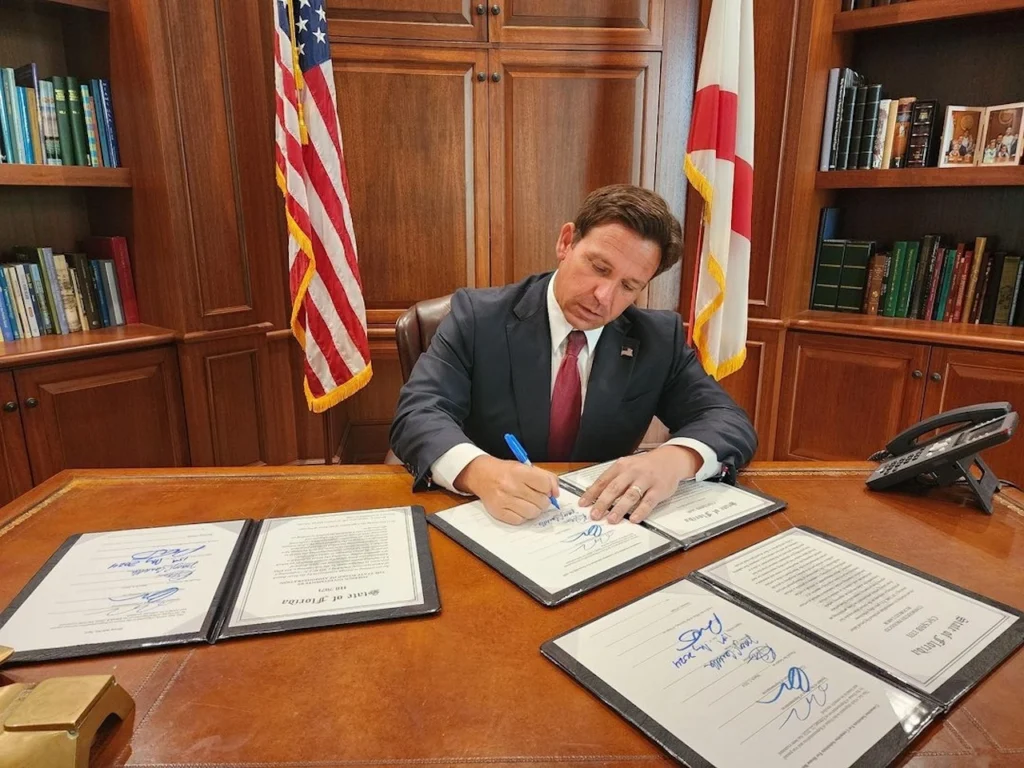Notorious for its above-average rate of gluteal fat grafting-related deaths, state officials in Florida began stepping up legislative efforts to protect patients two years ago.
House Bill 1561, signed into law by Gov. Ron DeSantis on Friday, May 10, is the latest of these initiatives.
House Bill 1561 enhances patient protections by requiring that more office-based surgical centers register with the state’s Department of Health, and by increasing the fines and financial protection requirements (liability insurance) imposed on these centers and the surgeons who operate in them.

The broad strokes of Florida House Bill 1561, which is now state law, include:
State registration required of more office-based surgical centers
Florida doctors doing liposuction previously needed to register their offices with the state’s Department of Health only if they were permanently removing more than 1,000 cubic centimeters of supernatant fat, such as can occur during liposuction surgery. State law now requires that these offices register with the state even if only temporarily removing that volume of fat.
Since fat is only temporarily removed during gluteal fat grafting (before it is then re-injected in the buttocks), this measure increases patient protections by subjecting these surgical centers to state inspections prior to opening and every year thereafter, and other oversight.
Higher fines for unregistered office-based surgical centers
Surgeons removing more than 1,000 cc of supernatant fat in an office-based surgical center that is not registered with the State’s Department of Health may now be fined $5,000 per incident, rather than per day.
Higher financial protection requirements for office-based surgeons and centers
Physicians operating in office-based surgical centers must carry professional liability coverage of at least $250,000 per claim, and at least $750,000 per year; or maintain an irrevocable letter of credit for these amounts. Practices or offices at which one or more surgeons perform gluteal fat grafting procedures (BBLs), must also now carry liability insurance, in the amounts outlined above.
Existing gluteal fat grafting safety measures reiterated
Florida House Bill 1561 also includes language that reinforces recently-passed protective measures for gluteal fat grafting (BBL) patients:
- Performing physicians must conduct “an in-person examination of the patient while physically present in the same room as the patient” no later than one day prior to surgery.
- Patients must provide written informed consent before a physician may delegate any duties during a BBL procedure. If written consent is granted and duties are delegated, direct supervision by the performing physician is required. Fat extraction and gluteal fat injections may not be delegated.
- Fat may only be injected subcutaneously, not intramuscularly or sub-muscularly, into the buttocks.
- Ultrasound guidance, or another board-approved guidance of equal or better technology, must be used by the performing physician (only) during the placement and navigation of the cannula through which fat is or will be injected into the buttocks. Such guidance is not required during fat harvesting or other parts of the gluteal fat grafting (BBL) procedure.
- Offices in which physicians perform BBL surgery must maintain a one-to-one patient/physician ratio from beginning to end of procedure—from anesthesia administration, through extubation.
- Once a physician has begun a BBL (gluteal fat grafting) procedure, he or she may not start a BBL or any other procedure with another patient at the same time.
Florida House Bill 1561 is part of the state’s two-year effort to curb gluteal fat grafting-related mortality.
Notable previous measures included:
June 14, 2022 • Limit 3 BBLS per surgeon per day: Florida’s Board of Medicine issued an Emergency Rule on June 14, 2022, which limited physicians in the state to performing not more than three (3) gluteal fat grafting procedures (BBL) per calendar day. Florida ER 64B8ER22-3 also prohibited intramuscular and submuscular fat injections in the buttocks, leaving subcutaneous injection the only legal option. Finally, it required physicians to use and preserve video’d ultrasound guidance when injecting fat into these regions.
June 28, 2023 • Ultrasound guidance mandated in parts of BBL procedure: Florida House Bill 1471, Health Care Provider Accountability, signed by Gov. Ron DeSantis June 28, 2023, made the use of ultrasound guidance during gluteal fat grafting procedures a matter of law from June 1 onward. It also allowed immediate revocation of surgery center’s registrations if they refused state inspections.
A Tampa Bay Times analysis of HB 1561 was consulted in this report.
